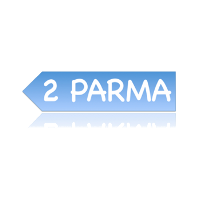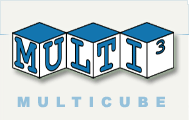My research activities have been carried out in collaboration with several international universities, research centers and industries. My research has been funded by several national and EU projects selected based on a competitive process. Since 2003 I was co-applicant and active participant of 12 European and 2 industrially funded projects (attracting around 4 M€ funding for POLIMI). Among them, I was Project Coordinator of three European projects:

Project Coordinator of the European project H2020-FET-HPC-ANTAREX-671623 on “AutoTuning and Adaptivity appRoach for Energy efficient eXascale HPC systems” (Sep. 2015 – Aug. 2018). The project wins a 3 million euro grant in the H2020 Future and Emerging Technologies programme on High Performance Computing. The project involves leading academic and industrial partners as well as CINECA, the Italian Tier-0 supercomputing centre and IT4i, the Czech Tier-1 supercomputing center. Being one of the nineteen research projects in FET-HPC-2014, ANTAREX brings the partners on the forefront of the European research in High Performance Computing. The main goal of the ANTAREX project is to provide a breakthrough approach to express by a Domain Specific Language the application self-adaptivity and to runtime manage and autotune applications for green and heterogeneous High Performance Computing systems up to the Exascale level. The Consortium also includes three top-ranked academic partners (ETH Zurich, University of Porto, INRIA). Industrial partners include one of the leading biopharmaceutical companies in Europe (Dompé) and the top European navigation software company (Sygic).

Project Coordinator of the European project FP7-2PARMA-248716 on “PARallel PAradigms and Run-time MAnagement techniques for Many-core Architectures” (Jan. 2010 – Mar. 2013). EC Contribution to the project: 2.74 Mio Euro. The 2PARMA Consortium is composed of seven partners: Politecnico di Milano (Italy), STMicroelectronics (Italy and France), Heinrich Hertz Institute – Fraunhofer Institute for Telecommunications (Germany), IMEC (Belgium), ICCS – Institute of Communication and Computer Systems (Greece), RWTH Aachen University (Germany), Synopsys (Belgium). The 2PARMA project focused on the definition of a parallel programming models, run-time resource management policies and design space exploration methodologies for many-core architectures. Applicability and benefits of the proposed techniques and tools have been validated and assessed on as set of industrial applications and hardware platforms. The 2PARMA project ended in March 2013 with an excellent evaluation by the European Commission demonstrating the fulfillment of its objectives and scientific/technical goals. Based on the opinion of the European expert reviewers: “the project represents a success story and has made significant contributions to the state-of-the-art in the field”. Also the expected impact is considered to be excellent.

ProjectCoordinator of the European project FP7-MULTICUBE-216693 on “Multi-objective design space exploration of multi-processor SoC architectures for embedded multimedia applications” (Jan. 2008 – June 2010). EC Contribution to the project: 2.098 Mio Euro. The MULTICUBE Consortium was composed of nine partners: Politecnico di Milano (Italy), Design of Systems on Silicon (Spain), STMicroelectronics(Italy), IMEC (Belgium), ESTECO (Italy), University of Lugano – ALaRI (Switzerland), University of Cantabria (Spain), STMicroelectronics Beijing (China), Institute of Computing Technology – Chinese Academy of Sciences (China). The MULTICUBE project finished in 2010 with an excellent evaluation by the EC demonstrating to fully achieve its objectives and scientific/technical goals. The project has demonstrated the benefits of using automated design exploration techniques (based on enhanced multi-objective optimization algorithms) by implementing a number of industrial use cases; practical ways to trade off accuracy for speed through the use of multi-abstraction level simulation thus enabling exploration of larger design spaces; the feasibility of automated parameter tuning at run-time using exploration data collected at design-time. In the context of the MULTICUBE project, I was also leading a research group at Politecnico di Milano whose research focuses on design space exploration for multi-processor architectures working on an open-source tool (MULTICUBE Explorer) to enable an automatic and fast optimization of configurable system architectures towards a set of objective functions such as energy and delay. MULTICUBE Explorer provides a set of innovative sampling and optimization techniques to help finding the multi-objective Pareto points. It also provides an open XML interface for supporting exploration of new platforms/architectures by interacting with a system-level simulator.
